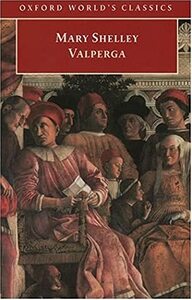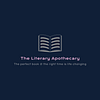Take a photo of a barcode or cover
Mary Shelley has such beautiful prose that her books are worth reading for it alone. Valperga is no exception. Written here are sentences that will astonish even the most seasoned readers of classic literature. Accompanying the incredible style is a rich story with wonderfully developed characters. The magnificence of the characterization in this book comes from the fact that much of the plot happens in the thoughts and emotions of the characters, rather than the external world. This may be due to my nature as a therapist, but my favorite chapters are those where one person will put forth their view of humanity, how it came to be, and how it now affects them mentally and emotionally. Seeing other characters react to this too is such a delight. It is a shame that Mary Shelley is most commonly known simply for being the author of Frankenstein. Her other works deserve just as much attention due to their beauty of word and thoughtfulness in themes.
Ho preso questo libro spinto solo dal protagonista, Castruccio Castracani, uno dei personaggi di spicco della storia di Lucca.
Se da un lato l'ambientazione mi emozionava, dall'altro l'autrice non mi dava grandi garanzie: di Mary Shelley -come penso quasi tutti- avevo letto finora solo Frankenstein, e l'avevo trovato deludente, enormemente sopravvalutato.
Questo libro è una sorta di romance storico ambientato nel 1300, e segue bene o male la vita di Castruccio Castracani dall'infanzia in esilio fino alla nomina a Duca e alla morte per malattia.
In mezzo, l'autrice inserisce due personaggi inventati per creare il romance: la contessa di Valperga (castello altrettanto inventato e posto nelle vicinanze di Lucca), Euthanasia (che allegria di nome, eh?), amica d'infanzia e grande amore di Castruccio; e Beatrice, figlia di una pagana eretica salvata da un prete e cresciuta come una profetessa, che perderà la testa per il condottiero lucchese.
La storia in sé non sarebbe male, ma il grosso problema è rappresentato dalla scrittura.
Non mi sembrava così malaccio in Frankenstein (pure scritto subito prima di questo libro), quindi probabilmente Mary Shelley avrà voluto tentare di adeguare lo stile al periodo storico.
Il risultato è ampolloso, infiorettato, tutto un elogio di virtù e qualità celestiali, grandi passioni innocenti e divine. Certi capitoli erano poesie d'amore di Dante o del Petrarca, rese prosa e protratte per molte, troppe pagine.
Confesso di aver spesso saltato interi brani, la parte centrale del libro in questo è la peggiore.
Peccato perché altrimenti mi avrebbe sicuramente conquistato, visto l'argomento. Ma ho fatto davvero fatica a portare avanti la lettura, non va bene.
Se da un lato l'ambientazione mi emozionava, dall'altro l'autrice non mi dava grandi garanzie: di Mary Shelley -come penso quasi tutti- avevo letto finora solo Frankenstein, e l'avevo trovato deludente, enormemente sopravvalutato.
Questo libro è una sorta di romance storico ambientato nel 1300, e segue bene o male la vita di Castruccio Castracani dall'infanzia in esilio fino alla nomina a Duca e alla morte per malattia.
In mezzo, l'autrice inserisce due personaggi inventati per creare il romance: la contessa di Valperga (castello altrettanto inventato e posto nelle vicinanze di Lucca), Euthanasia (che allegria di nome, eh?), amica d'infanzia e grande amore di Castruccio; e Beatrice, figlia di una pagana eretica salvata da un prete e cresciuta come una profetessa, che perderà la testa per il condottiero lucchese.
La storia in sé non sarebbe male, ma il grosso problema è rappresentato dalla scrittura.
Non mi sembrava così malaccio in Frankenstein (pure scritto subito prima di questo libro), quindi probabilmente Mary Shelley avrà voluto tentare di adeguare lo stile al periodo storico.
Il risultato è ampolloso, infiorettato, tutto un elogio di virtù e qualità celestiali, grandi passioni innocenti e divine. Certi capitoli erano poesie d'amore di Dante o del Petrarca, rese prosa e protratte per molte, troppe pagine.
Confesso di aver spesso saltato interi brani, la parte centrale del libro in questo è la peggiore.
Peccato perché altrimenti mi avrebbe sicuramente conquistato, visto l'argomento. Ma ho fatto davvero fatica a portare avanti la lettura, non va bene.
No es divertido de leer pero sí muy interesante.
Os cuento por qué aquí: https://gorgonas.com/2021/08/24/resena-valperga-o-vida-y-aventuras-de-castruccio-principe-de-lucca-mary-wollstonecraft-shelley/
Os cuento por qué aquí: https://gorgonas.com/2021/08/24/resena-valperga-o-vida-y-aventuras-de-castruccio-principe-de-lucca-mary-wollstonecraft-shelley/
Meh. Not my favorite. Thought the women were surprisingly lame. The writing was pretty, though.
challenging
emotional
sad
slow-paced
Plot or Character Driven:
A mix
Strong character development:
Complicated
Loveable characters:
Complicated
Flaws of characters a main focus:
Yes
slow-paced
Plot or Character Driven:
A mix
Strong character development:
Complicated
Loveable characters:
Complicated
This was another historic fiction novel from Mary Shelley; this one takes place in Italy in the early 1300s. It follows the exploits and adventures of Castruccio, Duke/Prince of Lucca - a real historic figure. It was published in 3 volumes from 1821 - 1823 and while it was received well, it was also perceived as a romance by its readers (maybe because it was written by a woman). While it has romantic tones and at times even a romantic underplot, I would be confident in saying that in my opinion it is definitely not a romantic novel.
Reviewing Valperga is a tough review for me to write because while I absolutely love Shelley's writing, it also felt like she was doing too much in this one book and it felt a bit all over the place at times.
CAWPILE Breakdown:
Characters: 8.5 - Shelley's characters were interesting and complex and kept developing on page.
Atmosphere/Setting: 9.5 - Absolutely steller. The way that Shelley described all the setting, I always had an image in my head. Atmosphere was also well written. You could feel it at all times.
Writing Style: 6.5 - This one pains me a bit. Shelley's prose was incredible as always - I love how she invokes emotions and feelings into her writing and how she interlaced Italian in with the English. But as I wrote above, it just felt like she was all over the place. Especially in volume 2 - which felt like it distracted readers from the plot a lot.
Plot: 6.5 - Speaking of the plot, the beginning and ending were strongly connected and the plot was great! The middle felt like we got side-tracked with a new character. I did appreciate how Shelley connected it all back together, though, in the 3rd volume.
Intrigue: 7 - I was strongly intrigued at times and others not so much.
Logic/Relationships: 7 - There were some places that could have been more logical - especially in the second volume, I kept thinking okay but what about our story? Relationships - Full marks! Shelley always delivers at building (and destroying) relationships. Valperga might be one of her strongest works when it comes to relationships.
Enjoyment: 7 - Despite it's flaws, I still enjoyed Valperga and I'm glad that I read it. I always enjoy Shelley's writing, whether it's her best (IMO Frankenstein) or not.
CAWPILE Total: 52/7 = 7.4 = 4 stars
Disappointing - The writing seemed wooden, lacking the beauty that Frankenstein had. It seems hard to imagine that the two novels were written by the same author.
Didn't, and will never, properly finish. All the subtlety of a mallet.
A little long, but extremely compelling. The mix of historical novel, political thriller, bildungsroman, and gothic psychological horror makes this a really interesting and exciting pastiche. You can't really get ahead of it. The three central characters are all extremely well drawn, and the novel shifts focus from one to the other in a way that is structurally really ambitious. A great read for anyone who likes early 19th century fiction.




